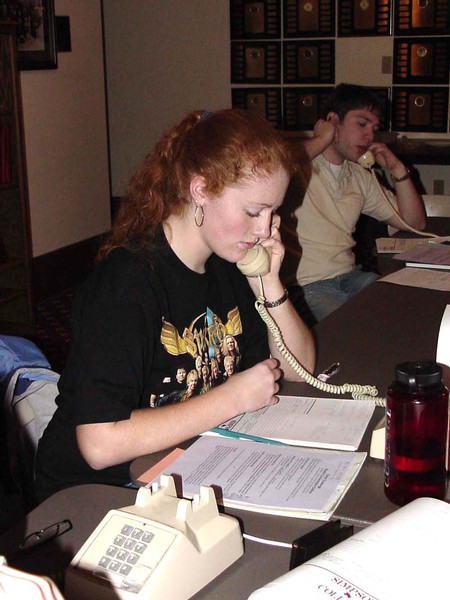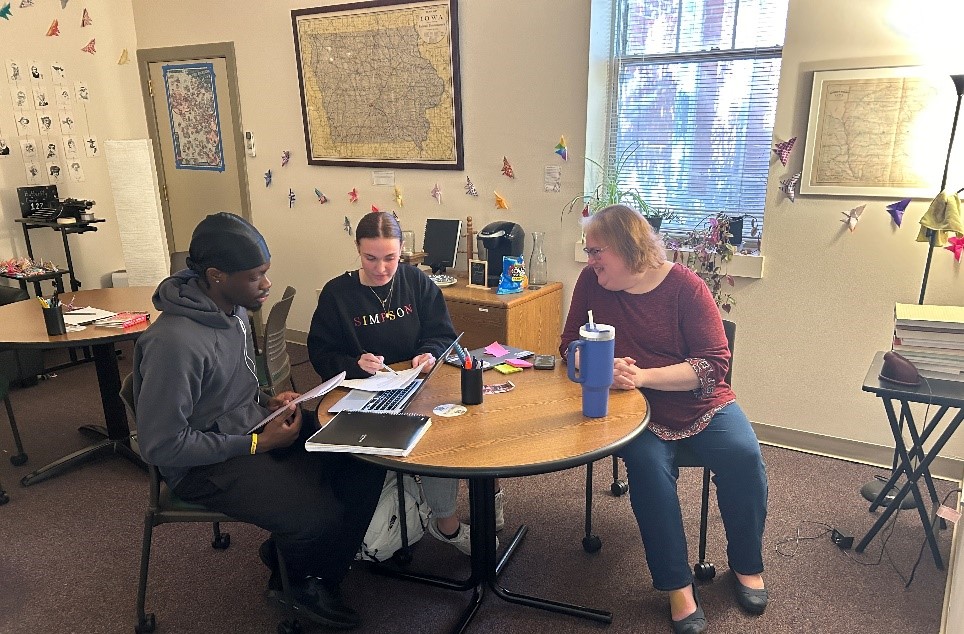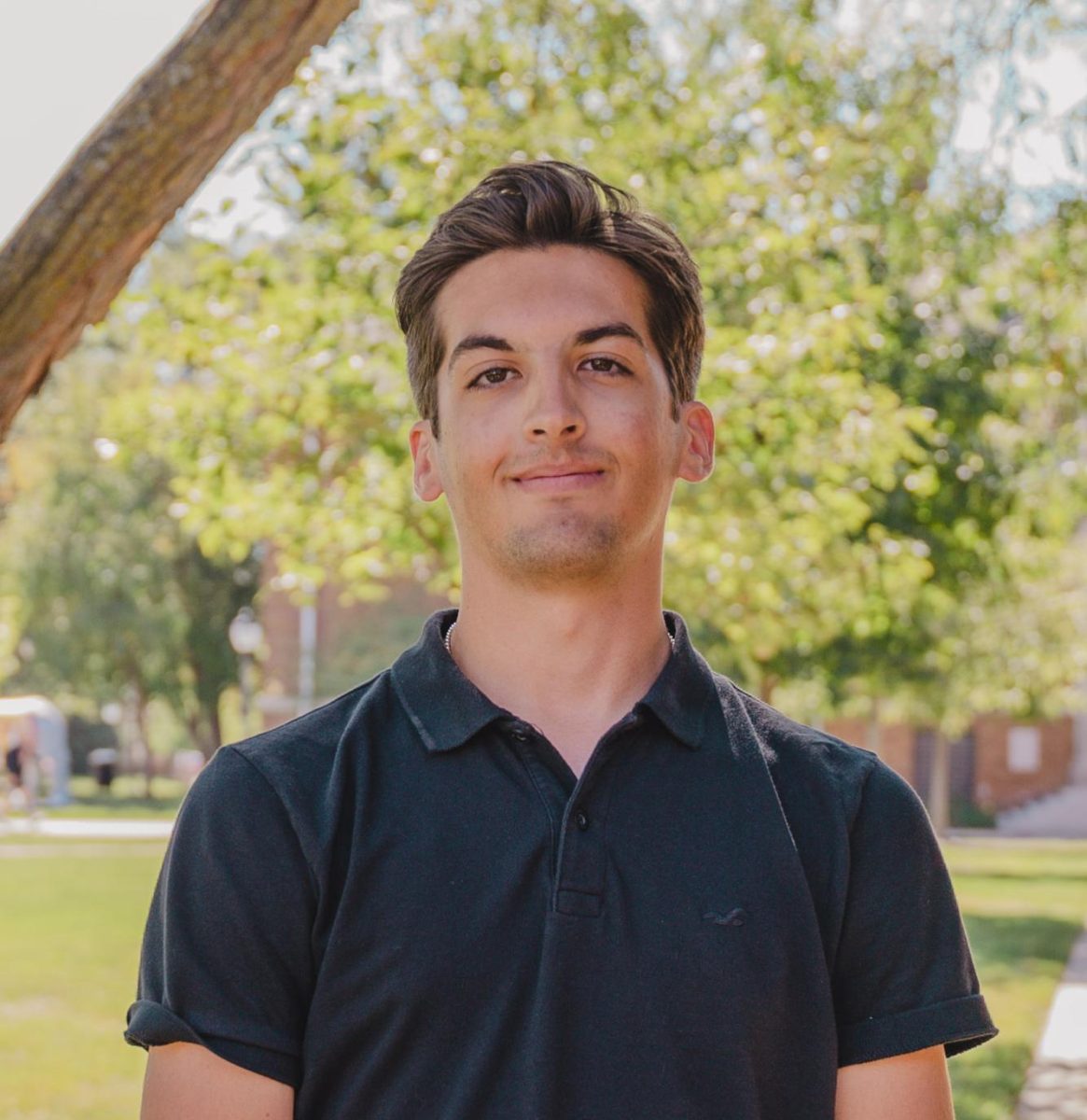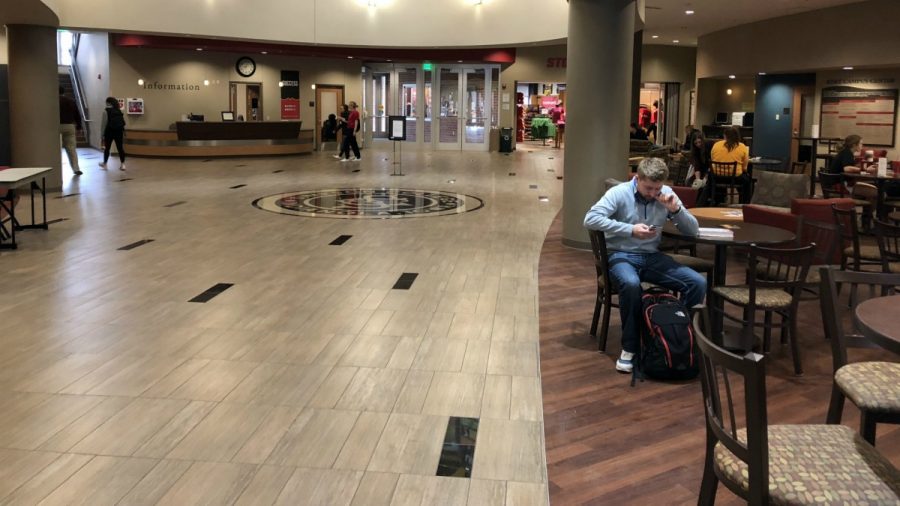Snap helps raise funds

February 26, 2004
Have you ever been propositioned by a 90-year-old man? AmberWilliams has.
Williams, a sophomore, is one of several Simpson students whoparticipate in Simpson’s National Annual Phonathon. These studentscall alumni, parents and friends of the college each semester toraise money for current students’ financial aid.
Williams said at first she wasn’t sure how to respond to heramorous alumnus, but the variety of people she talks to is part ofthe reason she enjoys the job.
“You never know what kind of person you’ll be talking to next,”said Williams. “Sometimes you talk to someone who is very nice andexcited to hear from you and the next person you talk to wantsnothing to do with you. It keeps me on my toes.”
Williams is working at the phonathon for her second semester.She said she decided to try SNAP because she wanted the extramoney, but now she does it because she genuinely enjoys it.
“The money is just an added benefit,” said Williams.
SNAP callers make $6 an hour for the first two semesters theyparticipate. Ashley Rullestad, the assistant director of annualgiving and alumni programs, is in charge of the phonathon. She saidafter two semesters students have the potential to get a 50-centraise.
“I don’t have anyone making that much right now,” saidRullestad. “People get jobs off campus or their schedule gets toobusy and they don’t have time, so they don’t stick with it thatlong.”
Sophomore Lance Harris is working for SNAP for the first timethis semester. He said it was an easy job for him.
“I don’t have trouble talking to anyone, so for me it’s easy tocall people I don’t know,” said Harris. “At first I didn’t reallywant to call someone just to ask for money, but after you do it fora night it’s not bad.”
The phonathon calls alumni, parents of former and currentstudents, and friends of the college. Friends of the college arepeople who have a connection to Simpson, but didn’t graduate fromthe college. SNAP focuses on alumni, who, according to Rullestad,are likely to give donations to support the current students.
“Then know what it was like to be here as students and needfinancial assistance,” said Rullestad. “They want to make sure thatthe students who are here now have that opportunity as well.”
Of course, not all phone calls made by the students at SNAP aresuccessful.
Harris said he hasn’t been very adept at getting people to givemoney to the Simpson Fund.
“I’ve called three nights so far and gotten a total of $25,”said Harris. “Maybe I suck at it, I don’t know. Oh well, it’s a lotof fun and I’m still making six bucks an hour.”
Harris added that it could be challenging to get recent alumnito donate.
“Of course they don’t want to give money, they’re already payingbills to Simpson,” he said.
This semester the college hopes to raise $35,000 through SNAP.Rullestad is optimistic about the goal.
“There are a lot of people signed up to work this semester,”said Rullestad. “We have a full room every night, which is great.I’m very excited about it.”
One aspect of the job that senior Emily Finn likes is talkingwith alumni because some of them are excited to hear fromSimpson.
“Once I talked to a woman in her 90s for at least 20 minutes,”said Finn. “Then she wrote me a letter. It was really cute.”
Williams said long conversations with people aren’tuncommon.
“There are a million stories we all could tell, each person hastheir own,” she said.
Finn said she enjoys the atmosphere at SNAP, but the time periodof 6 to 9 p.m. on Sunday through Thursday can be hard to workaround.
“It’s really relaxed and fun, but it can conflict with a lot ofother things in my schedule,” said Finn.
Harris likes the flexibility of the phonathon.
“It’s nice that you can go whenever you have time for it,” hesaid. “If you need some extra money you can go in all the time, butyou don’t have to.”
Harris said he isn’t sure he’ll work for SNAP next year.
“It all depends on how much money I have,” he said. “If I don’tneed the money, I’ll probably quit doing it.”
“Over the past few years the amount of time we’ve taken to dothe phonathon has increased, so that influences the amount of moneywe raise. The economy affects our totals also.” Ashley Rullestad,assistant director of annual giving and alumni programs





